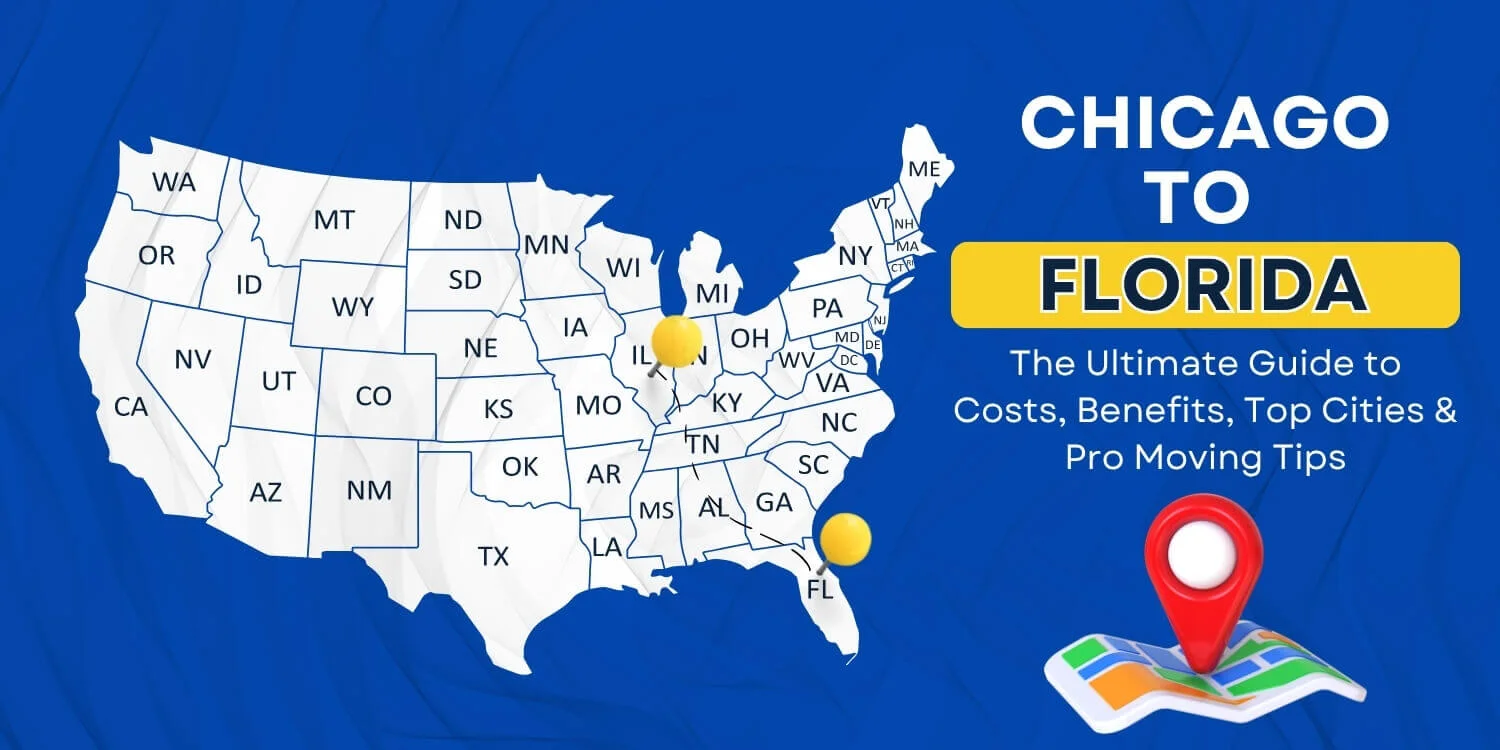Moving across the country can feel overwhelming, with a lot to take care of both where you’re leaving and where you’re headed. With so much happening at once, it’s easy to make errors that end up costing more money, taking more time and adding unnecessary stress. To make your cross-country move smoother and easier, here are the top five mistakes people often make—and how to avoid them.
1. Underestimating Costs
A common mistake when moving across the country is not fully realizing how much the whole move will actually cost. Many people only think about the main expense, like paying a moving company. But there are other things to factor in too—like gas for the drive, hotel stays along the way or the price of boxes and packing supplies. If you don’t plan for these, you could run into money problems. For instance, you might set aside $1,000 for something, but it could end up costing you $3,000.
2. Not Researching Moving Companies
Another big mistake is picking the first moving company you come across. If you choose the wrong one, it can lead to more stress—like delays or your stuff getting damaged. To avoid this, it’s important to:
- Get quotes from multiple moving companies.
- Make sure the quotes are for the same type of services.
- Find out what extra services they offer besides just transportation. (For example, some companies help with packing and unpacking, offer storage options and provide moving supplies.)
- Read reviews to help you make an informed choice.
Check review sites like Yelp to see what other customers have said or visit the Better Business Bureau to see if there are any serious complaints. You can also use the Federal Motor Carrier Safety Administration website to look up the company’s info, safety rating and other key details.
3. Packing Improperly
If you don’t pack your things the right way, it can cause a lot of problems during the move. Fragile items can break if they aren’t properly padded or secured. You might also use more boxes than needed if you don’t pack efficiently. And when you get to your new place, unpacking can become frustrating if your boxes aren’t packed neatly or labeled clearly.
To help avoid these common packing mistakes, here are some simple tips for handling fragile or valuable items:
- Wrap breakable items in bubble wrap.
- You can also use towels, sheets or blankets to protect things like mirrors or furniture from scratches.
- Pack breakables inside furniture drawers and fill in the empty space with clothes or linens to keep them from moving around.
- Place boxes with fragile items under tables or furniture so nothing heavy falls on them.
- It’s a good idea to carry items that can’t be replaced with you instead of putting them on the moving truck or in storage.
Label each box with what’s inside. Keep a list of everything you packed so it’s easier to find things when you get to your new place.
4. Failing to Plan for Logistics
A big mistake many people make is not thinking through the details for moving day. Even if all your packing is finished, it’s still smart to wake up early and be prepared when the moving truck arrives. Think about how long it will take to load everything and what supplies or tools you might need. You might also have to clean the house once it’s empty and make sure it’s locked up before you leave. Don’t forget to arrange for your utilities to be turned off after you move out.
You also need to think about what happens when you reach your new home. If you get there before you can move in, make sure you have somewhere to stay. Also, transfer the utilities into your name by the day you arrive or you might end up in a house without power or water. Be prepared for delays or surprises. Keep a box of essentials—like extra clothes and personal items—with you just in case the moving truck shows up late. The best way to stay on track is to make and follow a cross-country moving checklist.
5. Ignoring Personal Needs
When you’re racing against a moving deadline, it’s easy to forget about your own and your family’s well-being. Moving can be physically exhausting with everything that needs to get done. It’s also emotionally tough to say goodbye to friends and loved ones. This might be one of the most important mistakes to avoid during a long-distance move. Be sure to take breaks and care for yourself. Maybe spend an afternoon at the park with your kids or go out for a relaxing dinner. Some other ways to handle the stress include:
- Give everyone a job to do so they feel included.
- Ask friends for help if you need it—don’t be afraid to reach out.
- Order takeout instead of trying to cook during the chaos.
- Write down lists and reminders so you don’t have to remember everything on your own.
Moving gets a lot easier—and even more enjoyable—when you avoid these five common mistakes.
Frequently Asked Questions
How far in advance should I start planning my cross-country move?
You should start at least six to eight weeks before your move. This gives you time to book your date with the cross-country moving company before they fill up—especially if you have a set deadline.
What should I do if I run into unexpected problems during my cross-country move?
If something comes up that causes a delay, let everyone involved know right away. For example, if you won’t be ready on moving day, get in touch with your moving company as soon as possible.
Are there any legal or regulatory considerations I should be aware of when moving across state lines?
Some states have rules about what you can bring with you—like certain types of plants. A cross-country moving company can help you understand what’s allowed and what’s not, depending on where you’re moving.
How can I ensure a smooth transition and adjustment to my new location after the move?
Pack your boxes by room to make unpacking easier. Also, look up nearby essentials like grocery stores and pharmacies so you’re prepared when you arrive.
How much money should I have before moving cross country?
A cross-country move can get expensive, sometimes costing several thousand dollars. To plan your budget, get a quote from the cross-country moving company for their services.






